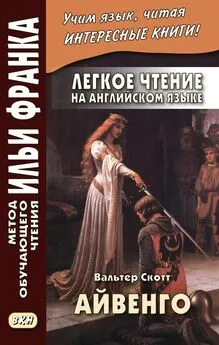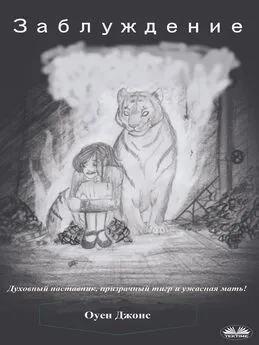Walter Mosley - Fearless Jones
- Название:Fearless Jones
- Автор:
- Жанр:
- Издательство:неизвестно
- Год:неизвестен
- ISBN:нет данных
- Рейтинг:
- Избранное:Добавить в избранное
-
Отзывы:
-
Ваша оценка:
Walter Mosley - Fearless Jones краткое содержание
Fearless Jones - читать онлайн бесплатно полную версию (весь текст целиком)
Интервал:
Закладка:
He was right. There I was bound up with murder and arson and even in trouble with a maybe crooked cop when I could have walked away. Could have but couldn’t anymore. I was no hero but I was stubborn, and, anyway, my five hundred dollars were gone.
“Fearless.”
“Yeah, Paris?”
“I’m sorry, man. Sorry I didn’t get you outta jail before you went in. Sorry I got you thinkin’ you gotta stay with me. I fucked up, man.”
Fearless stretched out his right hand while keeping his left on the wheel. I clasped it.
“You my friend, Paris. An’ this mess ain’t so bad. I was in a war eight thousand miles from home with white men talkin’ German in front’a me an’ white men talkin’ English at my back. They was all callin’ me nigger. They all wanted me dead. You know I wasn’t scared then, baby. This ain’t no more bad than a night with a girlfriend like to bite.”
THE CHARLES DINER was a night haunt. They didn’t have live music, but they had waitresses and drinks. The Charles was the place you went if you didn’t have the cover charge in your pocket. Fearless and I double-parked out front, and he ran in.
While waiting I tried to screw up the courage to do what I knew had to come next. I knew from experience that Fearless could be gone for a few days once he was off with a woman. He’d lose track of time, and how could I blame him? Ninety days was a long time to go without love, even for me.
I watched the blinking neon sign that lit up the old-time diner. The facade of the restaurant was made to look like a train car detailed in chrome. Now it was a place for the end of the night, when jukebox tunes would do. Thousands of people passed through those doors every week. Working people and gangsters, women looking for love or money and men looking to throw love or money away. You didn’t go to the Charles to see old friends; no, the Charles was where you went to seek out somebody who wanted to help you with your problem, somebody who wanted to give you something or take what you had to give.
“Hey, Paris.” Fearless opened the driver’s side and leaned in. “Dorthea got her own car an’ she don’t mind drivin’ it. So you take Layla’s, and I’ll see you tomorrow afternoon at Fanny’s.”
“You know Dorthea ain’t gonna let you go that quick.”
“Cross my heart, Paris. This is just for the night, baby. Tomorrow we got ground to cover.”
“Okay,” I said. “But take this dog anyway. Just in case you get stuck, I don’t want to have to take care’a no dog too.”
I eased in behind the wheel and we shook hands.
“You better take this,” I said, handing him four five-dollar bills and five ones. “Just in case you need somethin’.”
“Hey, Paris. Thanks, man.”
Fearless went around to the passenger door, opened it, and said, “Come on, boy.”
Blood jumped out with a quick bark.
I sat behind the wheel a few minutes after Fearless and his dog were gone, wondering if I would make it through the night without getting killed. A car behind me honked its horn, and I slid away from the curb, prodded by that unknown driver, into the night.
13
I DROVE UP and down Alameda Boulevard until about twelve-thirty, finally finding the storefront by intuition instead of a sign. I’d seen the darkened windows twice on my evening reconnaissance, but both times they didn’t make enough of an impression for me to look closer.
On the third pass I stopped and got out. Up close the drapes were a deep red. As soon as I saw the color I knew that it was the Messenger of the Divine. The curtains were drawn completely across the windows, but looking down past the sill I could see a thin band of light. Pressing my ear against the crack between the double doors, I could hear men talking; talking, not proselytizing, praying, or preaching.
I went around the side of the block. There was no alley behind the row of stores. That meant that whoever was in there had to come out on Alameda. I moved Layla’s car down the block and sat low in the seat, not wanting some cop to nab me for loitering.
It was a long wait. There was a chill in the air, and my shirt provided little to no warmth. Whenever I got cold up north I remembered New Iberia, my home. We didn’t live in the town. My mother and I were country. Our road was a dirt path only fit for feet or horses’ hooves. We lived in a shack made from tin and wood, cardboard, mortar, and tar paper. There was a brick oven that burned anything and a floor paved with small stones. There were three rooms, and we fit that place like a hand in a glove. In the summertime it was as hot as you could take it. It did get cold in December, but I still remember Louisiana for the heat. I loved it. As far as I could walk in any direction there were colored people, colored people and no one else. When I was a child I knew that the white people lived somewhere, but I rarely saw one in my daily routine. Our store owners and undertakers and carpenters were all black. So were our tailors and dressmakers, our butchers, bakers, and milkmen.
Everybody was poor, but nobody starved. We partied on Saturday nights and praised the Lord for our babies on Sundays. We worked hard when we had to and took it easy when there was a chance. A lot of colored people tell me that they hate the South; Jim Crow and segregation made a heavy weight for their hearts. But I never felt like that. I mean, lynchings were a terrible thing, and some of those peckerwoods acted so stupid that they embarrassed the hell out of you sometimes. But I still loved the little shack I shared with my mother. I’d have still been there if it wasn’t for one terrible event.
That event was learning to read.
I entered school at the age of six. It was a country schoolhouse with two teachers and four rooms. They broke us up among the classrooms according to size at first, and then they shuffled us around depending on ability. The fourth room was for study; children went in and out of there at the teachers’ request. On the first day I heard Miss Randolph read a story, and I knew that books were my destiny, not writing or teaching or inventing spaceships, just reading and reading and reading some more. I could pick out a simple sentence based on the knowledge of a dozen words by the end of the first week. By the age of eight I was alone in the fourth classroom, reading everything I could. I read the Bible and the dictionary and every newspaper I could. I read every book in our whole neighborhood by the time I was fifteen.
There was a library in the white part of town; coloreds couldn’t go inside. For a while I would go there and sit out front on the bench they had, rereading old books like The Hinkley Reader and Uncle Tom’s Cabin. One day the librarian, an old battle-ax named Celestine Dowling, came out and asked me what I was doing.
“Readin’,” I said proudly.
“Really,” old Miss Dowling said.
“Yes’m,” I replied.
“I don’t believe you,” she stated.
I didn’t know what to reply to such a rude comment, so I sat tight and quiet.
“Read me a sentence,” she ordered.
There is nothing worse than the snows of May, I read from a story called “Minnesota Snows.”
Dowling frowned and said, “Go on.”
I read the first page and then the second. I read all the way through the story. I had read that book many times and so did not skip or stutter hardly at all.
When I was through, Miss Dowling said, “Come on with me.”
She led me through the big double doors of the library into a large room that was at least twenty feet high, lined to the ceiling with shelves that were packed with neat rows of books. I remember my heart catching. I forgot how to breathe altogether. I had no idea that there were this many books in the whole world. There was a big oak table in the center of the room with fancy chairs around it. There was a podium with a proper Webster’s open to some page. The dictionary I’d read was just a small abridged thing that contained words a child might need to know.
“This is the library,” the librarian said.
I nodded and gulped.
“Close your mouth, boy.”
“It’s beautiful,” I said finally. “I never seen nuthin’ like it.”
“Of course you haven’t,” she said. “And do you know why?”
“Because I never been in here before?” I asked, not understanding the question.
“No,” she said from some Olympian height. “It is because this is a white library. And no matter how much you know how to read, these books are not meant for you. These books were written by white people for white people. This is literature and art and the way our country is and should be. There will be no library card for you, so you can stop sitting out in front. You have seen as much of this building as you ever will.”
The impact of her words brought tears to my eyes. I was thirteen, but, like I said, I’ve always been small. I looked up at Celestine Dowling, and she seemed pleased to see me cry.
“Go on now,” she said.
I went home in tears. My mother asked me what was wrong, but I was too sad to say. I cried that night and all the next day. Celestine Dowling had broken my heart out of a meanness that I couldn’t understand. Why would she hate me for being able to read well? I wasn’t hurting her. I would have been glad to check out books from the back door or window. I wouldn’t’ve treated those books badly.
All of the happiness flowed out of me then. For months I moped around. I made money reading contracts and warranties for my neighbors, but every time I’d read a line I’d remember the high shelves of that country library.
By the time I was seventeen I was on a train bound for San Francisco, not because I wanted to vote or was afraid of being lynched. I left because a man told me one night that in California black folks could go into any library they wanted. They could get library cards and check out books from here to Sunday.
It was cold in Frisco, but I read a book a day in the first year. Libraries still make my heart race. There is nothing like a book.
“I understand you, sir,” a voice agreed.
I smiled in my doze, thinking that most people thought I was crazy when I told them that story. A door closed and I was jarred awake. Three men stood in the shadows down the street in front of the curtained church.
Some more words were spoken, but I didn’t understand them. This made me think that I had given meaning to the words I heard in my sleep. Through the darkness I could tell that one of the men was white and the other two were black. One black man was well built, wearing a white suit. He laughed and slapped the white man on the shoulder. That was William Grove. I remembered him going into the church with all of the deacons shaking his hand as he went past. The other black man seemed to be older. He also wore a suit, but it was shapeless, fitting the man like the everyday uniform of a night watchman or usher.
The white man was powerfully built too. That’s really all I could tell about him, except that he seemed to have some kind of foreign accent. They talked briefly, and then a dark-colored sedan drove up. The white man got in, and the sedan drove off.
I crouched down as the sedan went past. When I rose partway up again, the black men were still talking.
They talked for a while more, and then Grove walked away down the street. The older man used a key in the front door to the church and went in.
I had brought myself to the edge of that minefield by asking a couple of good questions and by perseverance. But every step from then on was laid out for a better man than I was. So I sat there trying to will myself up the evolutionary ladder from man to superman. But when I got out of that car, there was no cape dragging behind me, only a tail between my legs.
Читать дальшеИнтервал:
Закладка:
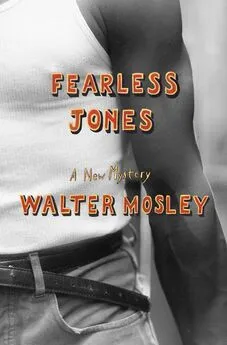
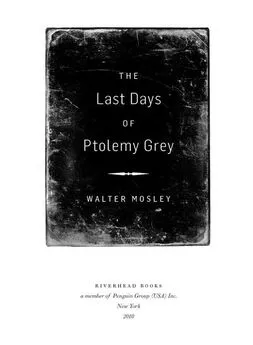
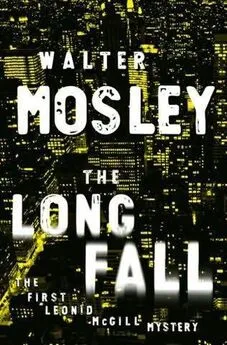
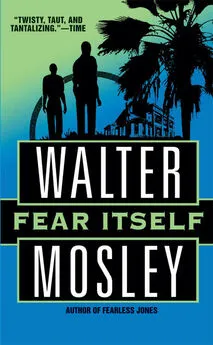


![Anna Jones - По истечении срока годности – забыть [СИ]](/books/1149886/anna-jones-po-istechenii-sroka-godnosti-zabyt-s.webp)
